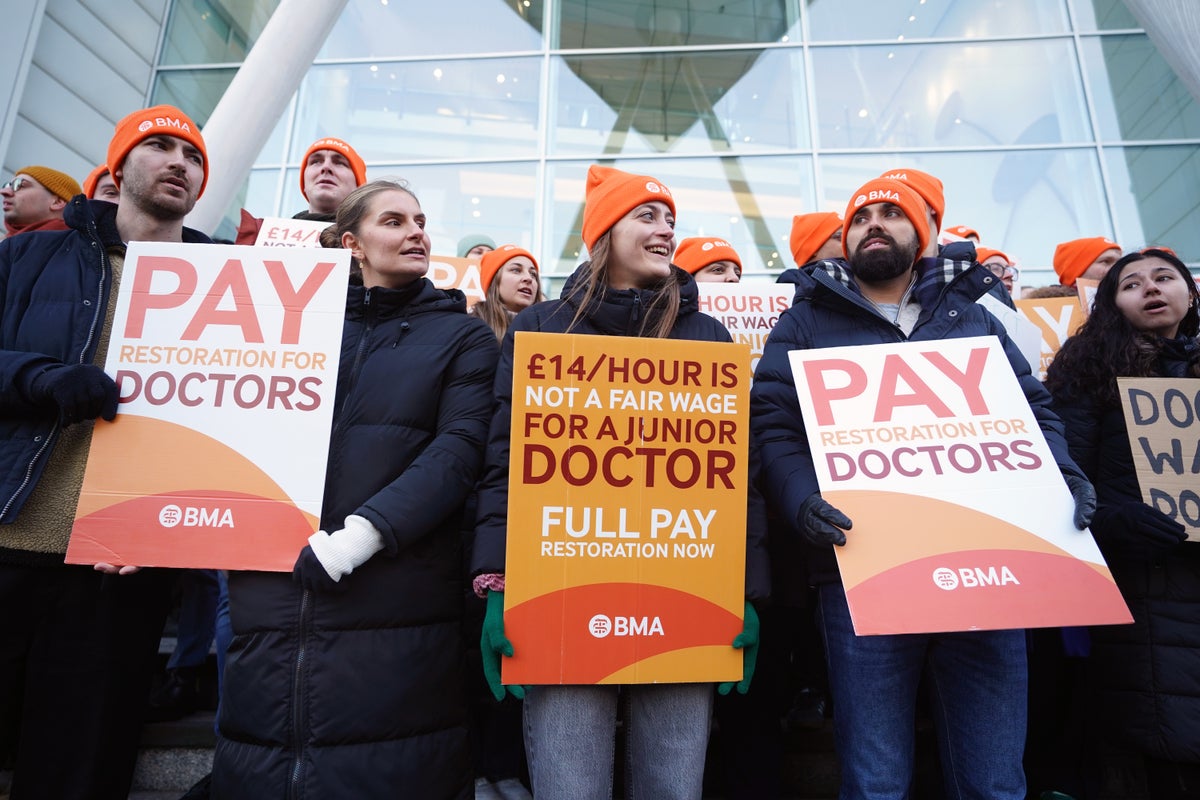
Strikes by junior doctors in England will go ahead this week because unions are locked in a standoff with the government, an NHS leader has said.
NHS Confederation chief Matthew Taylor has said that a resolution is extremely unlikely as neither side is willing to budge from their position.
Six days of strikes in England will start on Wednesday and will leave NHS services in a “highly vulnerable position” at what is one of the busiest times of the year, Mr Taylor said.
The NHS Confederation has urged the government and the British Medical Association (BMA), the doctors’ union, to resume talks in an attempt to halt the walkout.
Mr Taylor told the BBC on Monday that “even at this late stage, an intervention could make a difference”. But he added: “Unfortunately, I think it is extremely unlikely there will be a resolution. There is a genuine difference between the BMA and the government around the issue of pay.
NHS strike action saw more than 1.1 million appointments and treatments cancelled in 2023— (PA)
“It feels like there is a standoff ... The government is refusing to enter negotiations unless the junior doctors call off the strike action, and the junior doctors are refusing to call off strike action unless the government commits to investing more money – and that is a pity.”
He warned that the unprecedented strikes would have a heavy impact on the NHS. “These days are going to be very damaging to us. Even at this late stage, an intervention could make a difference. It would be important, but we will be working on the basis that these strikes – the longest strikes we have ever seen in the NHS – will be starting the day after tomorrow.”
Junior doctors will walk out from 7am on 3 January until 7am on 9 January, amounting to a total of 144 consecutive hours of industrial action.
There is an agreement in place allowing striking doctors to be recalled to cover major incidents. Mr Taylor stressed that the BMA must back any requests for junior doctors to be recalled if NHS services find themselves under extreme pressure.
He added: “To face almost 150 hours of continuous stoppages is a serious and unprecedented risk, and one that NHS leaders and their staff have never experienced before.”
The BMA is asking for a 35 per cent pay rise for junior doctors— (PA)
The BMA is in a standoff with the government over pay, demanding a 35 per cent pay rise for junior doctors in order to restore real earnings to 2008 levels. The government has said that this is unaffordable.
The BMA warned last week that there could be further strike action in 2024 if the government does not make a credible offer on pay.
This week’s strike will have a big impact on planned operations, with the chief executive of Milton Keynes University Hospital saying that the trust expected to cancel about a third of its operations.
Some A&E services will also have to close.
NHS strike action caused more than 1.1 million appointments and treatments to be cancelled in 2023.







